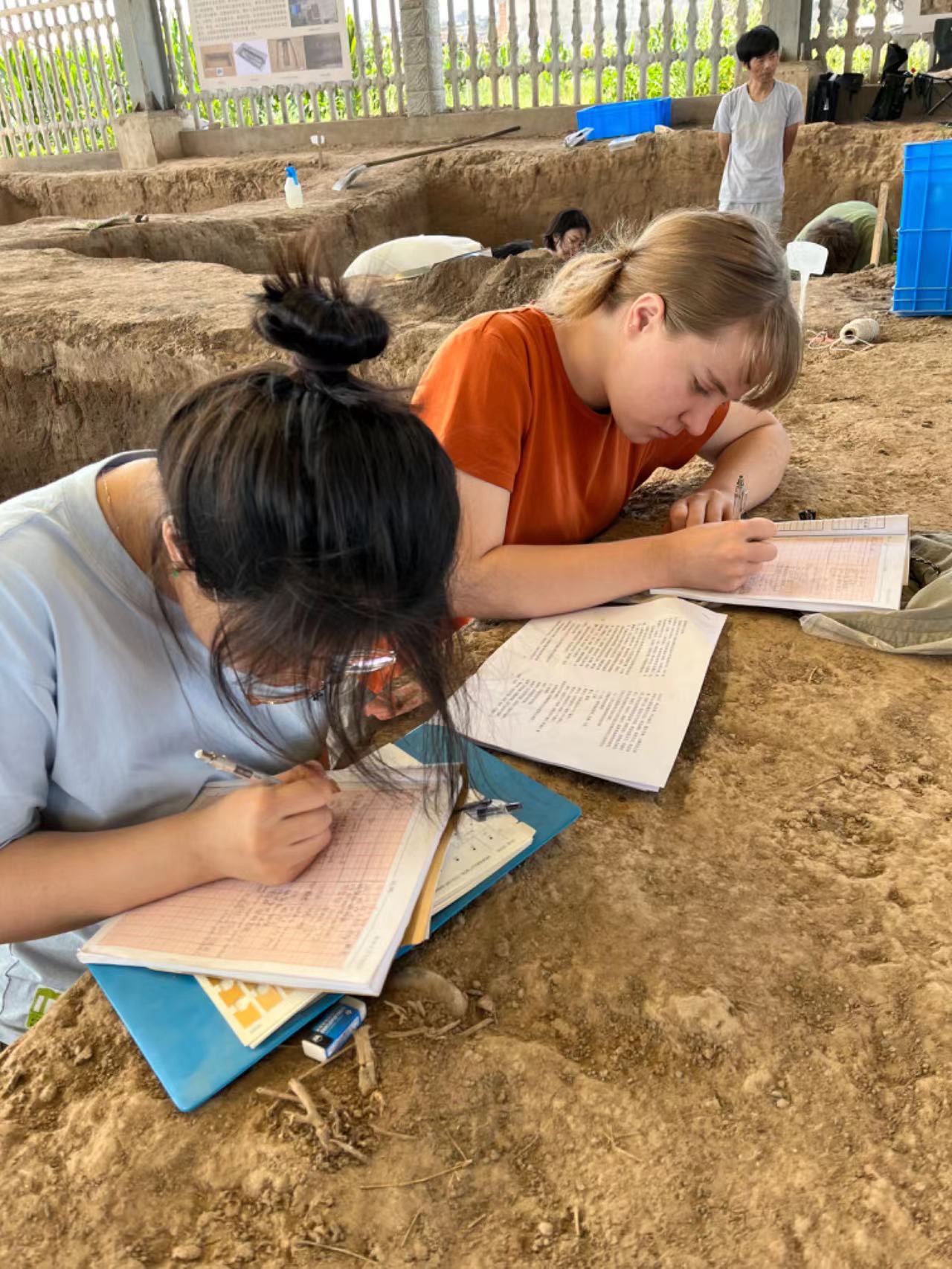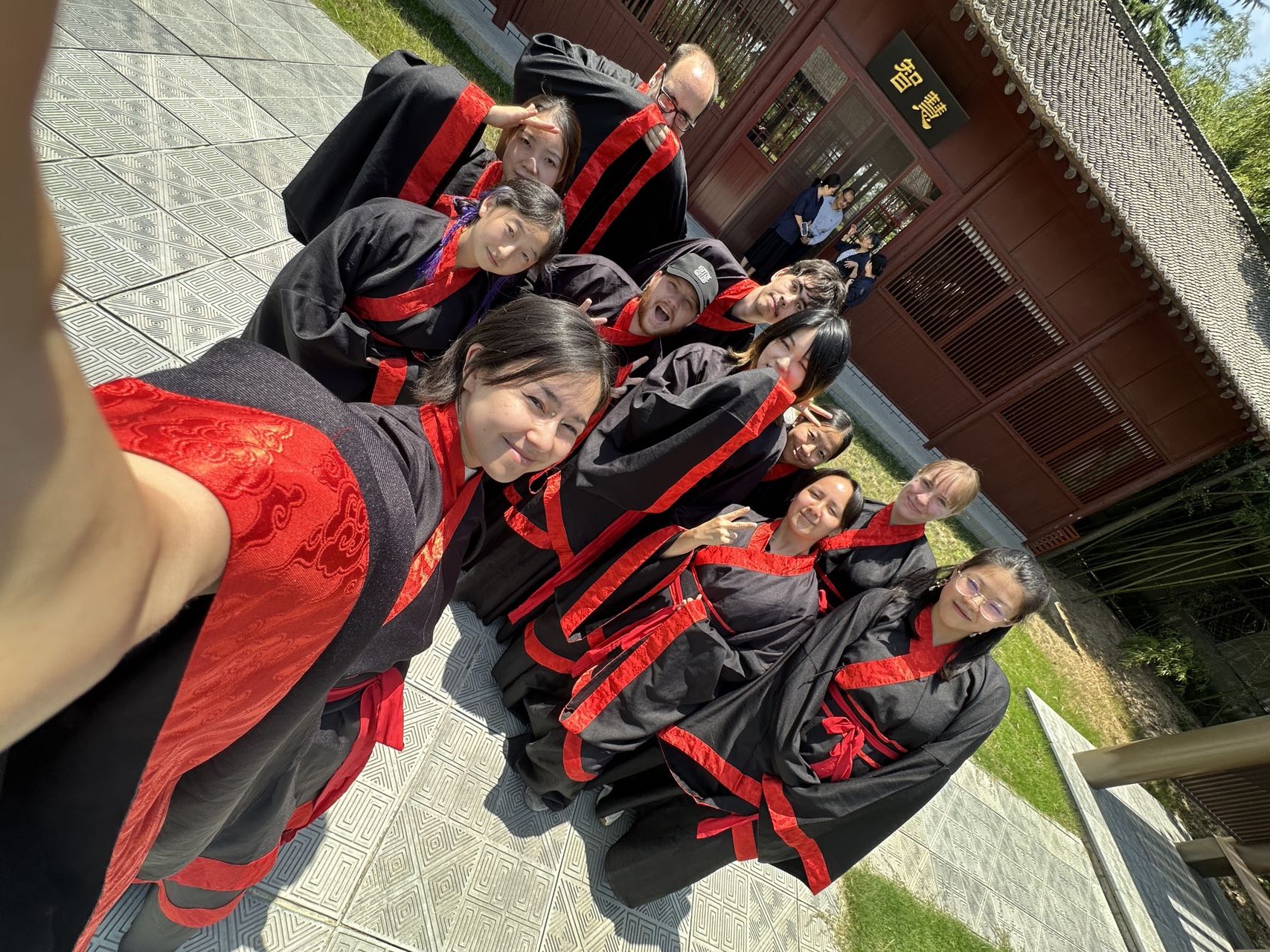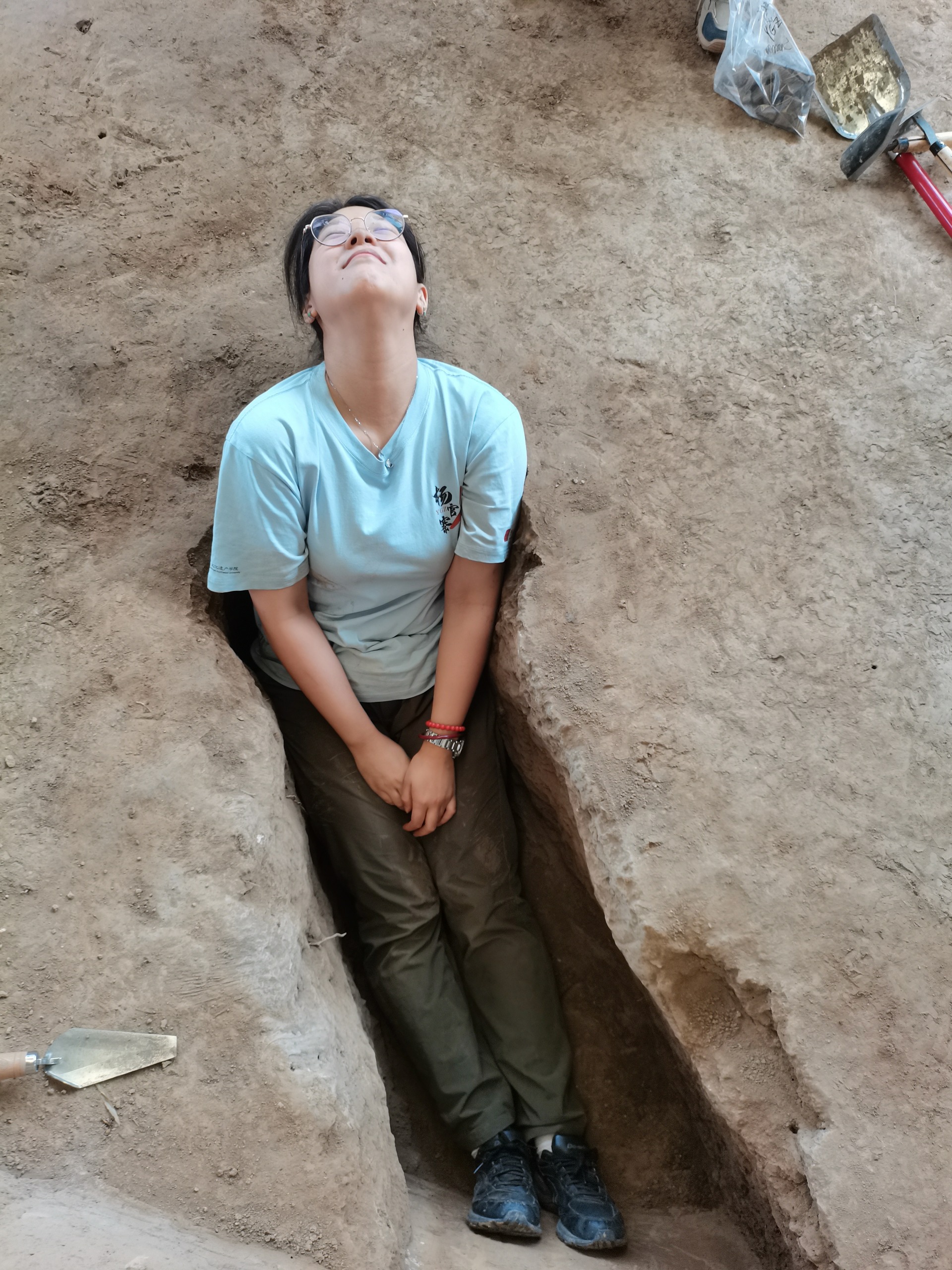This summer, students from around the world embarked on an extraordinary journey through time and place with IFR’s China: Yangguanzhai Excavation Field School. As we close out a successful field season excavating at Yangguanzhai, we are taking a look back at what has made this program so impactful and memorable through the eyes of the IFR’s 2024 student cohort. Their reflections provide a vivid account of discovery, learning, and cultural immersion, painting a picture of a transformative experience that blends rigorous hands-on learning with rich personal exploration. We can’t forget a fair amount of fun as well!
Settling In
The Yangguanzhai field school is broken down into two parts, with an initial week of lectures and field trips introducing students to a wide array of topics related to Chinese archaeology before students head out into the field. “As someone who did not have any formal education in archaeology, the introductory lectures that we had attended this week were very useful in providing me with a crash course on the key terms and concepts that I would need in order to mindfully participate in the excavation process” reflected IFR student, Shermaine.
Outside of the fascinating introductory lectures, students took full advantage of their time in Xi’an by soaking up the vibrant local culture, sampling delicious regional cuisine and forming close bonds in their down time. “The ancient city of Xi’an is an incredibly vibrant city filled with the most incredible architectural, historical, cultural, and archaeological wonders,” relays IFR student Adam. He continues, “The most enjoyable moments of this first week were the moments I spent with my new friends, whether that was in one of the many museums we visited, or walking the city’s Ming walls, or playing Go Fish in the evening”.
Hands-On Archaeology
From the second week of this five-week field school, students dive into excavation work at the Yangguanzhai site, a key location for understanding the Neolithic period in the region. Their excitement about working in the trenches was palpable even from their initial day of orientation on site. “Seeing the sheer scale of the excavations that had been previously undertaken underscored to me the importance of the excavations that we would be carrying out over the next 4 weeks,” shared Shermaine, “As the Neolithic people left no written records, archaeology is essential in forming the basis of our understanding of their cultures and way of life”.
Through meticulous tasks such as scraping excavation unit floors and analyzing stratigraphic profiles, students gained invaluable practical skills. “One of the most beneficial techniques I learned was distinguishing features in the soil by texture, rather than relying solely on color,” explained another participant. From trowel techniques and sifting to the post-processing of artifacts, the practical knowledge gained through hands-on fieldwork is crucial for any aspiring archaeologist.
IFR field schools provide a supportive environment to build these practical skills, particularly for students with little to no prior field experience. “Being taught the basics allowed me to build a solid foundation in terms of understanding the basic principles of archaeological fieldwork, which is invaluable to me as someone with no prior excavation experience” explained one student, “…the detailed guidance and feedback that I had received from both the field school team and my more experienced trench mates have undoubtedly set me up with the fundamental skills that I would need in any future archaeological job”.
Context is Key
Between intense and rewarding days of field work, students continued to explore the region’s archaeological, cultural, and natural treasures. From the Han Yang Ling Museum and a visit to the Terracotta Warriors Museum, to hikes in the scenic Qinglin Mountains and trying on Han-era clothing, this group of students packed a wealth of memories into their five week program.
The cultural immersion component of the program is a key strength of the field school in the eyes of this year’s students. “These visits to museums, as well as the other cultural activities (both ancient and modern) we have undertaken during our time here in Xi’an have really helped give context to the ancient site of Yangguanzhai”, relays one student.
Learning and Growth
Academically, the field school offers a comprehensive introduction to Chinese archaeology, from lectures on geoarchaeology and human osteology to practical experiences in experimental archaeology. “One of the most unique things I learned was how to make a Neolithic-style ceramic knife,” shared a student, emphasizing the hands-on learning approach that the field school fosters.
The program also includes crucial lessons in presenting research and working collaboratively. “Attending the Mid-Term Presentation was particularly eye-opening,” one student noted, reflecting on the opportunity to share findings and learn from peers.
As the field school drew to a close, students carried forward a profound appreciation for the intricacies of archaeological practice and the cultural context in which it unfolds. “The experiences and memories from this program will stay with me for many years to come,” concluded one participant, summing up the lasting impact of their time in Xi’an.
IFR’s Yangguanzhai Excavation program offers a unique opportunity for students to engage deeply with China’s ancient past while developing practical skills that will serve them well in their future careers. For those considering a journey of their own, the program promises an enriching experience that combines the best of academic rigor with the thrill of meaningful cultural discovery. Learn more about IFR’s Yangguanzhai Excavation program here.




